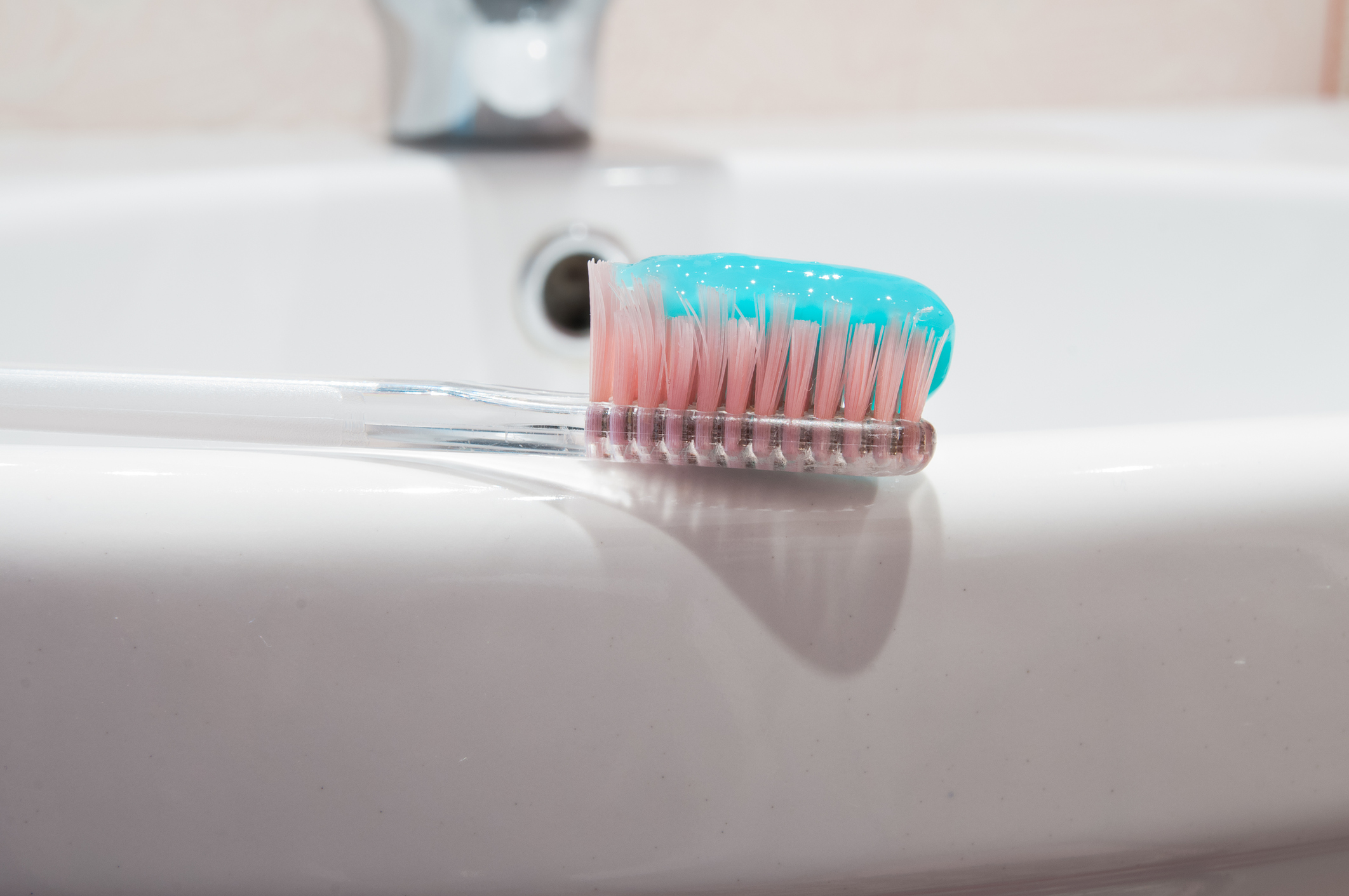

Brushing your teeth twice a day and visiting the dentist twice a year have obvious benefits for your oral health. Both help fight cavities and gum disease, as well as keep your breath fresh and teeth whiter.
But there are a lot of other benefits to good oral hygiene. Like your gut, your mouth has its own microbiome filled with all kinds of bacteria. And if you don’t take care of it, the bad bacteria could begin to run rampant.
Oral microbes have been linked with diabetes, rheumatoid arthritis, pneumonia, heart disease, cognitive abilities and pregnancy outcomes. In fact, one study shows regular dental visits can reduce your risk of developing pneumonia by a whopping 86 percent.
Now, researchers are exploring whether something as simple as brushing your teeth, especially during a hospital stay can reduce the risk of serious respiratory complications. And what they’ve discovered is pretty astounding…
The respiratory impact of toothbrushing
Hospital-acquired pneumonia (HAP) is a serious infection of the lungs that occurs after a patient has been hospitalized. It is more common in people whose breathing is being assisted by a ventilator.
HAP occurs in between 5 and 20 out of 1,000 hospital admissions and from 2.5 to more than 6.1 cases per 1,000 patients not admitted to the intensive care unit (ICU).
Previously, the recommendation was to use oral chlorohexidine rinses to prevent ventilator-assisted pneumonia. But it turned out its use for oral decontamination in the ICU was linked with increased mortality. This has caused a lack of clarity on which strategies to use to prevent HAP.
A team of researchers decided to investigate whether daily toothbrushing could help lower the risk of HAP. They conducted a review and meta-analysis of 2,786 patients in clinical trials and found that those whose teeth were brushed twice daily had lower rates of HAP and ICU mortality. That means they were less likely to contract HAP and less likely to die in the ICU.
“It’s unusual to find a preventative strategy that lowers mortality rates,” Dr. Michael Klompas of Harvard Medical School and Brigham and Women’s Hospital in Boston tells MedPage Today. “And to think that it’s something as simple and inexpensive as toothbrushing is remarkable.”
That’s not all the researchers found. Patients receiving invasive mechanical ventilation showed a significant reduction in pneumonia incidence, while the results were not significant in those not receiving the treatment. Daily toothbrushing was connected with an average of 1.24 fewer days on ventilation and 1.78 fewer days in the ICU.
There were similar outcomes for brushing twice a day compared to more frequent brushing.
Klompas tells MedPage Today he hopes the results will give doctors “an enhanced appreciation of the importance of toothbrushing in hospitalized patients.”
Clean mouth, healthier body
The study authors note that while the study does suggest toothbrushing could also prevent non-ventilator HAP, more data is needed to confirm that possibility.
But even with study limitations, there’s solid indication that it’s important to keep your mouth clean and see a dentist regularly — and lots of previous research backs that up.
Regular dental visits and regular brushing can help you avoid or get ahead of things like gum disease that has been linked to cancer, diabetes, kidney disease and even prostatitis.
If you wear dentures, take precautions as well. According to researchers, if dentures are not cleaned properly, they could provide a new surface where pneumonia-causing bacteria can colonize. Then, when people wear those dentures, they may be inhaling saliva containing these microbes into their lungs, where infection can take hold.
Source:
Toothbrushing Linked to Lower Risk of Hospital-Acquired Pneumonia — MedPage Today
Association Between Daily Toothbrushing and Hospital-Acquired Pneumonia — JAMA Internal Medicine
Daily Toothbrushing to Prevent Hospital-Acquired Pneumonia—Brushing Away the Risk — JAMA Internal Medicine
Comprehensive risk assessment for hospital-acquired pneumonia: sociodemographic, clinical, and hospital environmental factors associated with the incidence of hospital-acquired pneumonia — BMC Pulmonary Medicine

